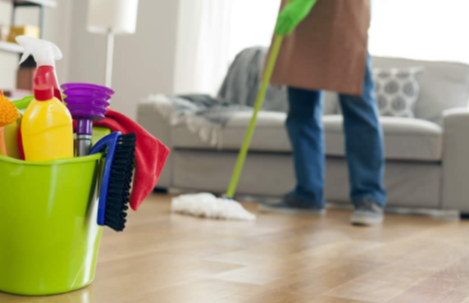Singapore’s Hidden Army: Post-Reno Cleaning Revolution

Post-renovation cleaning services Singapore represent a quiet revolution in the city-state’s relentless pursuit of spatial perfection, where invisible labour transforms architectural violence into domestic tranquillity. Behind Singapore’s gleaming facades and perpetually renewed interiors lies an army of specialised cleaners who perform the alchemical work of turning construction debris into liveable space, a transformation so complete that its very success renders the labour invisible.
The Labour of Erasure
In a society obsessed with newness, post-renovation cleaning operates as a form of industrial amnesia. The work involves not merely removing dirt, but erasing the memory of construction itself. Every paint splatter eliminated, every cement particle extracted, every protective film peeled away participates in this systematic forgetting of the violent processes that create our built environment.
The workers who perform this erasure understand intimately the material culture of construction. They read surfaces like texts, interpreting the stories told by different types of debris:
Plaster residue patterns – Revealing the sequence of wall treatments and repairs
Drilling dust distribution – Mapping the installation of fixtures and fittings
Paint migration paths – Tracing the movement of workers through space
Adhesive ghost marks – Preserving the memory of temporary protection systems
Metal filing deposits – Recording the precision work of electrical and plumbing installations
The Geography of Renewal
Singapore’s compact geography creates unique conditions for post-renovation cleaning work. High-density living means that renovation debris cannot simply be dispersed; it must be methodically contained and removed. The proximity of neighbours demands that cleaning processes respect both noise limitations and air quality concerns.
“Every renovation project in Singapore is essentially a negotiation with spatial constraints,” notes one experienced cleaning specialist. “We’re not just cleaning surfaces; we’re managing the relationship between construction chaos and community harmony.”
This geographic reality shapes cleaning methodologies. Traditional approaches that might work in landed properties require adaptation for HDB flats, condominiums, and shophouses. The vertical nature of much Singaporean housing demands careful consideration of how cleaning activities affect multiple levels and adjacent units.
The Economics of Invisibility
Post-renovation cleaning occupies a peculiar position within Singapore’s economy. The work commands premium pricing due to its specialised nature, yet remains largely invisible to those who benefit from it. Property owners understand the necessity but rarely contemplate the complexity of the labour involved.
The economic logic of professional post-renovation cleaning rests on several factors:
Time compression Professional teams complete in hours what might take homeowners days
Specialised equipment access Industrial-grade tools and cleaning agents unavailable to consumers
Insurance and liability coverage Protection against damage during the cleaning process
Health and safety compliance Proper handling of potentially hazardous construction residues
Quality assurance Systematic approaches that ensure comprehensive cleaning
The Technology of Transformation
Modern post-renovation cleaning deploys increasingly sophisticated technologies. HEPA filtration systems capture microscopic particles, whilst specialised solvents dissolve adhesive residues that resist conventional cleaning agents. Steam cleaning systems operate at precise temperatures to lift embedded debris without damaging underlying surfaces.
Yet technology alone cannot accomplish the transformation. The work requires an almost archaeological sensitivity to the layers of construction activity embedded in post-renovation spaces. Experienced cleaners develop an intuitive understanding of how different materials behave, which surfaces require gentle treatment, and where hidden contamination might lurk.
The Ritual Dimensions
Beyond its practical function, post-renovation cleaning serves ritual purposes within Singapore’s culture of spatial renewal. The process marks the transition from the construction phase to the occupancy phase, from architectural intention to lived reality. This threshold moment requires careful orchestration to ensure that spaces can fulfil their intended purposes.
“The cleaning isn’t just about removing debris,” explains one industry professional. “It’s about creating the conditions for new life to begin in these spaces. We’re preparing rooms for the stories that will unfold within them.”
This ritual aspect explains why many property owners invest in professional cleaning services even when they might theoretically manage the work themselves. The ceremony of transformation requires appropriate expertise and attention to detail.
The Environmental Calculus
Singapore’s environmental consciousness increasingly shapes post-renovation cleaning practices. The proper disposal of construction debris, the use of environmentally responsible cleaning agents, and the minimisation of water waste all factor into contemporary cleaning protocols.
Professional services navigate complex regulations governing waste disposal whilst ensuring that cleaning processes themselves don’t contribute to environmental degradation. This environmental awareness reflects broader societal shifts toward sustainability in all aspects of urban living.
Read Also: The Ultimate Guide to Bringing Home a Doberman Puppy
Future Trajectories
As Singapore’s built environment continues evolving, post-renovation cleaning services adapt to new materials, construction techniques, and regulatory requirements. The industry anticipates increasing demand as the city-state’s renovation cycles accelerate and property owners seek more sophisticated finishing standards.
The work will likely become more specialised, with cleaning teams developing expertise in specific types of construction materials and renovation approaches. Technology will continue advancing, but the fundamental requirement for skilled human judgement in managing the transformation from construction site to liveable space will persist.
In Singapore’s ongoing project of urban renewal, post-renovation cleaning services Singapore remain the invisible facilitators of architectural dreams, ensuring that the violence of construction yields to the peace of habitation.




